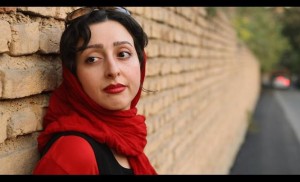In much of the world, amazing advances have been made in the lives of girls. With so many new and exciting opportunities made available to young women, it can be easy to forget that girls in many countries are faced with a stifling lack of choices.
Before the 1979 revolution in Iran, women were increasingly winning monumental battles and making impressive progress in the legal system. Between 1925 and 1979, women successfully fought for and gained the right to go to college, vote, run for parliament, divorce and retain child custody, and the marriage age for girls was raised from 13 to 18. Just before the revolution, there were 22 women in parliament and two million women were active in the workforce.
After 1979, a new, strongly theocratic government came into power under Ayatollah Ruhollah Khomeini, who oversaw new and harsh enforcement of Islamic law. Women were now largely expelled from government (although they retained the right to vote), the marriage age of girls was lowered to 9, and conservative Islamic dress codes with harsh penalties for those who deviated from them. During this time, female musicians were banned from public solo performances, severely limiting opportunities for women in the arts.
A new documentary, Bird of Dawn, from Iranian filmmaker Ayat Najafi, tackles the issue of female censorship through the struggle of her sister, Sara Najafi, and her quest to organize a public concert featuring Iranian and French solo female singers. Sara enrolled in music school as a girl of 12, and went on to become the first woman in Iran to receive a diploma in music composition. Ayat’s film follows her sister’s three year struggle to receive permission for her concert. Over this time, the Iranian Culture Ministry and religious officials have granted and rescinded permission for her performance several times, frustrating Sara and her fellow musicians. Bird of Dawn follows Sara as the film’s main character, along with Parisian singers Elise Caron, Jeanne Cherhal, and Emel Mathlouthi, and Iranian singers Parvin Namazi and Sayeh Sodeyfi. Ayat says that singing, “the strongest expression of the body, is used as a tool of female strength to fight against oppression.”
Despite their obstacles, women in Iran have shown themselves to be resilient and determined, and are still working hard to regain their lost rights. Learn more about Ayat and Sara Najafi and watch their campaign against female censorship here.
-Katie Watkins
Junior Girl
Girl Museum Inc.

